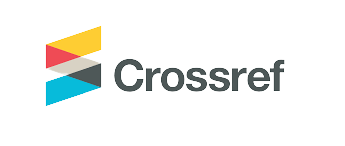Implementation of STEAM in Pesantren Curriculum: An Experimental Study Based on Local Wisdom
Keywords:
STEAM Approach; Pesantren Education; Local Wisdom; Learning Interest; Student ParticipationAbstract
This study aims to examine the implementation of STEAM (Science, Technology, Engineering, Arts, and Mathematics) approaches based on local wisdom in pesantren curriculum, as well as its impact on students' learning outcomes, interest, and participation. Utilizing a quasi-experimental design with pretest-posttest control group, the study involved two groups of pesantren students: one receiving STEAM-based learning integrated with pesantren local values, and the other using conventional methods. Data were collected through critical thinking tests, learning interest questionnaires, and observation sheets. The results indicate that students in the STEAM group achieved significantly better learning outcomes, showed higher interest, and were more actively involved in classroom activities compared to the control group. The integration of local wisdom—such as cooperation, responsibility, and environmental awareness—played a crucial role in contextualizing abstract scientific concepts into meaningful and applicable learning. This study contributes to the development of a culturally grounded educational model in Islamic boarding schools that harmonizes religious values with 21st-century skills.
References
Aguilera, D., & Ortiz-Revilla, J. (2021). Stem vs. Steam education and student creativity: A systematic literature review. Education Sciences, 11(7). https://doi.org/10.3390/educsci11070331
Bassachs, M., Cañabate, D., Nogué, L., Serra, T., Bubnys, R., & Colomer, J. (2020). Fostering critical reflection in primary education through STEAM approaches. Education Sciences, 10(12), 1–14. https://doi.org/10.3390/educsci10120384
Bertrand, M. G., & Namukasa, I. K. (2020). STEAM education: student learning and transferable skills. Journal of Research in Innovative Teaching & Learning, 13(1), 43–56. https://doi.org/10.1108/jrit-01-2020-0003
Conradty, C., & Bogner, F. X. (2020). STEAM teaching professional development works: effects on students’ creativity and motivation. Smart Learning Environments, 7(1). https://doi.org/10.1186/s40561-020-00132-9
Conradty, C., Sotiriou, S. A., & Bogner, F. X. (2020). How creativity in STEAM modules intervenes with self-efficacy and motivation. Education Sciences, 10(3). https://doi.org/10.3390/educsci10030070
Fahdini, A. M., Furnamasari, Y. F., & Dewi. (2021). Urgensi Pendidikan Karakter dalam Mengatasi Krisis Moral di Kalangan Siswa. Jurnal Pendidikan Tambusai, 5, 9390–9394. https://doi.org/https://www.jptam.org/index.php/jptam/article/view/2485
Hsiao, P. W., & Su, C. H. (2021). A study on the impact of steam education for sustainable development courses and its effects on student motivation and learning. Sustainability (Switzerland), 13(7), 1–24. https://doi.org/10.3390/su13073772
Kijima, R., Yang-Yoshihara, M., & Maekawa, M. S. (2021). Using design thinking to cultivate the next generation of female STEAM thinkers. International Journal of STEM Education, 8(1). https://doi.org/10.1186/s40594-021-00271-6
Machmud, H. (2014). Urgensi Pendidikan Moral dalam Membentuk Kepribadian Anak. Al - Ta’dib, 7(2), 75–84. https://doi.org/https://ejournal.iainkendari.ac.id/index.php/al-tadib/article/view/318/308
Marín-Marín, J. A., Moreno-Guerrero, A. J., Dúo-Terrón, P., & López-Belmonte, J. (2021). STEAM in education: a bibliometric analysis of performance and co-words in Web of Science. International Journal of STEM Education, 8(1). https://doi.org/10.1186/s40594-021-00296-x
Mejias, S., Thompson, N., Sedas, R. M., Rosin, M., Soep, E., Peppler, K., … Bevan, B. (2021). The trouble with STEAM and why we use it anyway. Science Education, 105(2), 209–231. https://doi.org/10.1002/sce.21605
Mustoip, S., Lestari, D., & Purwati, R. (2024). Implementation of STEAM Learning Methods to Develop Collaborative and Creative Characters of Elementary School Students Implementation of STEAM Learning Methods to Develop Collaborative. Journal of Primary School, 1(2).
Nuragnia, B., Nadiroh, & Usman, H. (2021). Pembelajaran Steam Di Sekolah Dasar : Implementasi Dan Tantangan. Jurnal Pendidikan Dan Kebudayaan, 6(2), 187–197. https://doi.org/10.24832/jpnk.v6i2.2388
Ozkan, G., & Umdu Topsakal, U. (2021). Exploring the effectiveness of STEAM design processes on middle school students’ creativity. International Journal of Technology and Design Education, 31(1), 95–116. https://doi.org/10.1007/s10798-019-09547-z
Purwowidodo, A., & Zaini, M. (2024). Developing a Value-Based Moderate Islamic Education Model: A Case Study of Pesantren Sidogiri Pasuruan. Jurnal Pendidikan Agama Islam (Journal of Islamic Education Studies), 12(1), 43–62. https://doi.org/10.15642/jpai.2024.12.1.43-62
Sugiyono. (2016). Metode Penelitian : Kuantitatif, Kualitatif, dan R&D. Bandung: CV Alfabeta.
Susanto, R. (2024). Konsep Pendidikan Karakter dalam Islam. In Pendidikan Karakter Berbasis Islam (pp. 20–32). U ME Publishing.
Susanto, R., Ali, M. M., & Hidayat, M. D. (2024). Islamic Religious Education in the Independent Learning Curriculum. IKTIFAK : Journal of Child and Gender Studies, 02(02), 63–72. https://doi.org/https://doi.org/10.55380/iktifak.v2i2.962
Susanto, R., & Syahrudin, S. (2024). Social Transformation Through Education: Building a Caring and Empowered Generation. Ngabari : Jurnal Studi Islam Dan Sosial, 17(2), 37–48.
Susanto, R., Widodo, W., & Kolis, N. (2023). The Implication of the Sima’an Ahad Pahing on the Qur’an Memorization at PPTQ Al-Hasan Ponorogo. Al-Adabiya: Jurnal Kebudayaan Dan Keagamaan, 18(2), 125–132. https://doi.org/10.37680/adabiya.v18i2.2396
Susanto, R., Yahuda, R. D., Basuki, & Kadir, abdul. (2023). Implications of Developing Fayd Al-Barakat Book on Learning Qiraat sab’ah in the Digital Era. Jurnal Pendidikan Al-Ishlah, 15(4). https://doi.org/https://doi.org/10.35445/alishlah.v15i4.3009
Wahyuningsih, S., Nurjanah, N. E., Rasmani, U. E. E., Hafidah, R., Pudyaningtyas, A. R., & Syamsuddin, M. M. (2020). STEAM Learning in Early Childhood Education: A Literature Review. International Journal of Pedagogy and Teacher Education, 4(1), 33. https://doi.org/10.20961/ijpte.v4i1.39855
Yahuda, R. D., & Susanto, R. (2022). Implementation of holistic islamic education purposes based “totally moslem truly intelectual” in iain ponorogo postgraduate program 2022.
Yahuda, R. D., Susanto, R., Widodo, W., & Kolis, N. (2024). Totally Muslim Truly Intellectual-Based Holistic Education in Postgraduate Programs. QALAMUNA: Jurnal Pendidikan, Sosial, Dan Agama, 16(2), 1399–1410. https://doi.org/10.37680/qalamuna.v16i2.4104
Zeyad, A. M., Tayeh, B. A., Adesina, A., de Azevedo, A. R. G., Amin, M., Hadzima-Nyarko, M., & Saad Agwa, I. (2022). Review on effect of steam curing on behavior of concrete. Cleaner Materials, 3(December 2021), 100042. https://doi.org/10.1016/j.clema.2022.100042
Downloads
Published
How to Cite
Issue
Section
License
Copyright (c) 2025 Journal of Islamic Studies and Educational Innovation

This work is licensed under a Creative Commons Attribution-ShareAlike 4.0 International License.







